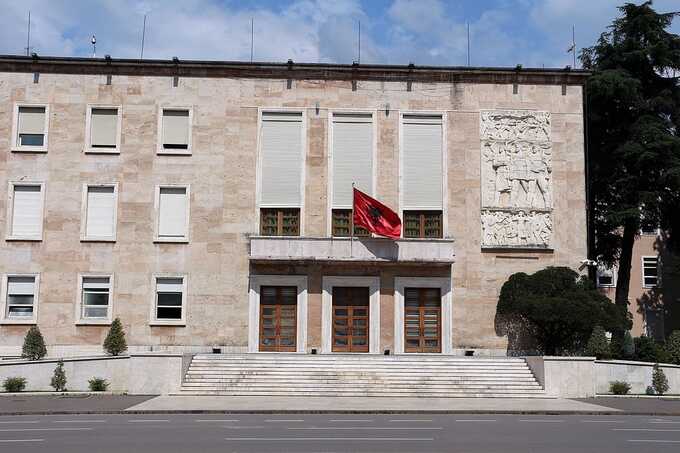Beqaj, who served as Albanian Health Minister from 2013 to 2017, is suspected of orchestrating fictitious procurement procedures in at least eight tender competitions for EU-financed projects in Albania, under the Instrument for Pre-accession Assistance (IPA), the Special Prosecutor’s Office (SPAK) said.
SPAK’s investigation alleges that Beqaj abused EU funds during his tenure at the State Agency for Strategic Programming and Aid Coordination (SASPAC), established in October 2021 to oversee national and regional EU financial programs.
SPAK also requested detention in the ongoing proceedings against Beqaj initiated in early 2023.
Investigators uncovered that during Beqaj’s leadership, SASPAC issued fraudulent invoices for incomplete services, which were billed as legitimate expenses. These invoices reportedly involved Beqaj’s close associates, including SASPAC officials, business contacts, and individuals from non-profit organizations.
Among those named in SPAK’s documents is Ermal Kurtulaj, a confidant and friend of Beqaj, who served as the coordinator of the EUSAIR Facility Point program. This strategic initiative involved nine European partners across eight countries, with SASPAC under Beqaj’s leadership managing and monitoring the program.
The EUSAIR program aimed to foster macro-regional cooperation in the Adriatic and Ionian region.
Evidence includes suspicious invoices totaling hundreds of thousands of euros, purportedly for services like catering, implicating multiple companies, restaurants, and two institutions — SASPAC and EUSAIR.
Kurtulaj, trusted by Beqaj, allegedly orchestrated the submission of invoices for activities SASPAC had reportedly not undertaken.
According to SPAK, Kurtulaj faces accusations of actively soliciting and accepting fictitious invoices from various commercial entities and NGOs, inflating amounts for personal gain.
Earlier this year, SPAK also accused former Health Minister Beqaj of abusing office in a significant case involving one of Albania’s most expensive health sector concessions related to the sterilization of medical equipment.
In 2015, Beqaj signed a concession contract exceeding 134 million euros (US$144.87 million) for the initial two years.
A four-year investigation revealed legal violations in health sector concession procedures, allegedly tailored to favor companies linked to high-ranking Health Ministry officials. Violations included falsified feasibility studies and criteria designed to benefit pre-selected companies, including one owned by Beqaj’s deputy minister, Klodian Rrjepaj.


































